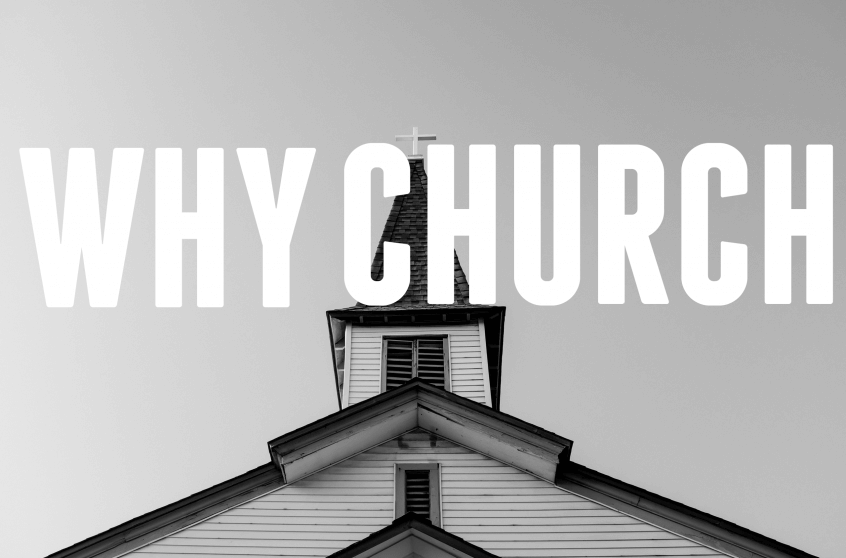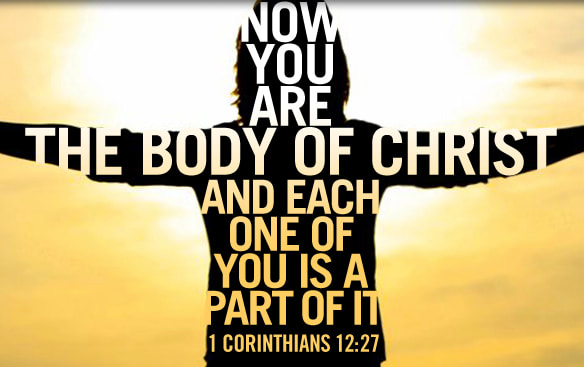The truest form of worship to God, is being the visible and tangible expression of God’s love and grace in the world. This is what it means to be a church, and a follower of Jesus Christ.Today is the third Sunday after Epiphany in Year C of the Common Lectionary. And many of you might wonder what that means? Basically, three weeks ago we celebrated the epiphany, which kicked off the church season we’re in. And Year C means we’re in the last year of a three year reading cycle. The purpose of the lectionary is to make sure the church moves through the Bible. Which you’d think would be a common thing we do already. Even though it doesn’t cover all the books, the Lectionary helps us…as one of my professor said… crack open the gold leaf on the parts of the Bible that aren’t at the top of our reading list. Every week there’s a passage from the Old Testament, a Psalm, an Epistle, and something from one of the four gospels. Some Christian denominations read all four selections, and then there are churches like us who only focus on one text to draw our lesson from. Today, I want to shake up the way we typically do things and read parts from all four recommended books.
This is what worship looked like back when the Israelites returned to Jerusalem to rebuild their city after being held in captivity in Babylon for 60 years. And it’s not really that different than how most Christian churches practice today. They read the scripture, they stood and knelt at different times. They prayed and bowed their heads in reverence to God. And like some do today, the people lifted up their arms to God with both heartbreak and joy as a way to feel God’s embrace. The best part I think is after service they ate and drank together, making sure everyone was included – even those who had nothing to offer. The Bible tells us, Church is a community of people. While Methodist worship differently than Mennonites, and Presbyterians differ from Pentecostals, most Christian churches share many rites and rituals with our ancient Jewish founders. Church is a community. But did you notice who’s there in the congregation. The people who were at the Water Gate, a place where the residents of the city would come to draw clean water and be refreshed. From the religious officials to the common person, young and old, male and female alike...anyone and everyone who was there was invited to hear the word of God and be refreshed by God’s Spirit. The Bible tells us Church is a community that is diverse. Which takes us to Paul’s first letter to the Corinthians. Picking up from last weeks topic of the variety of spiritual gifts, Paul continues in chapter 12 saying:
The Bible makes it pretty clear that God wants everyone to partake in the worship experience. In fact, the more the merrier. But more than just butts in the seats, God wants us to actually show up. That is, to bring our spiritual gifts, the very gifts given to us to build up the Kingdom of God…but also to use our gifts to make worship more meaningful and multi-dimensional. You see, Church is a community that is diverse and dynamic. Everyone needs to be welcomed, because through Christ everyone belongs to God. And this is important to stress, because we live in a world where people are increasingly becoming more disassociated with the community around them. Some scientist have argued loneliness and seclusion pose a greater health risk to our society than smoking or obesity. It’s no secret that part of being human is having the need to belong. That’s why one of our goals here is to reach people who cannot or will not walk into a physical church structure. We made New Church to be a safe place where all opinions and all people are welcome to join us, wherever and whenever they want. Humans also desire to be in a place where we can have significance or make a difference. For me, Jesus Christ, is such a place. Through him, God has welcomed me in a loving embrace. I am safe in God’s presence…free to be the best possible me...all for God’s glory. Just the same, God invites and welcomes you. Jesus did not discriminate. Every one was equal, despite our differences. And no one was greater than the other. With Jesus, the Church community is diverse and dynamic, and always welcoming us to be who God made us to be. Blake was a freshman in high school when he signed up to be a reader at the church. But many people thought it would be a mistake to give him the responsibility. You see, Blake was born with vision and hearing issues that affected his speech. Some worried that the congregation would have trouble understanding him. Paul said, the members of the body that seem to be weaker, or different than us, are actually indispensable. We all have something to give for God’s purpose. And Blake was no different. So I honored his request. And I respected the concerns of his critics by projecting Blake’s readings on the screen so people could follow along. I was not surprised when Blake did a great job. And because of him, the PowerPoint presentation became a central element of our weekly worship. Believe it or not, there were people who thought Jesus couldn’t do the job either. In the fourth chapter of Luke’s gospel, we get this story.
The lectionary breaks Luke’s story into two parts. In the first part, Jesus returns to his hometown to celebrates sabbath in his parents synagogue. Maybe because his reputation had preceded him, Jesus was asked to give the reading and interpret the scripture, like Ezra once did. When he is handed the scroll of the prophet Isaiah, Jesus locates a particular passage that talks about the Messiah. Unlike Blake, who just wanted to participate in our sabbath worship, Jesus used this platform, and this prophetic text, to announce to the world both his ministry and his mission. As Luke will go on to reveal, the congregation had trouble understanding Jesus too. Not because he had a speech impediment, but because they were only able to see him in one way. To them Jesus was just a kid from the hood, a local carpenter’s boy…no one of any prominence. Moreover, they get angry with Jesus for making this claim and attempt to kill him for doing so. What does all this say about the way we do church? How do we gather. How might we honor God? Are we just showing up? Or are we truly living up to our greatest God-given self? As the lectionary moves us through the Bible, we learn what true worship is to be. It’s not just standing and kneeling to get some cookies at the end. True worship is about hearing and doing of the will of God for the building up of God’s Kingdom. For the Christian churches, this means continuing Jesus’ mission and ministry – bringing the good news to the poor, freeing those who are trapped in an unjust economic system, and providing care to the least of these our brothers and sisters. It is right to honor God with our lips, but our words can fall on deaf ears if we refuse to honor God with our hearts and hands as well. For there is no greater praise we can give God than by living out Christ in the world. True worship – that which is truly pleasing to God – is being the manifestation of God’s love and grace in all that we do. Jesus did this. But do we? In Psalm 19, our last reading, the writer tells us that:
The psalmist tells us that the natural world bears witness to God’s glory by living out it’s created goodness. So too is it with all of God’s people. To live in accordance to God’s law enables us to live as God made us to live. God sent Jesus to show us how it’s done. When we see and do as Jesus did, then we learn and teach the will of God for all to see God’s glory.
We might do church in a non-traditional way. But we struggle like everyone else to carry on the mission and ministry of Jesus Christ, in a world that continues to reject and crucify him. But this is what Jesus called us to do. So we do it. It might not be perfect, but I believe that even our struggle is pleasing to God when we live out Christ to the best of our ability. Church is a community that is diverse and dynamic; a place that is welcoming and caring; and it always proclaims the presence of God’s love through Jesus Christ as a sacred act of worship. This can happen in a building, in a backyard, or online, or at work or school. God doesn’t need a steeple or stain glass. But God needs us. We are the Body of Christ whose various gifts reveal to the world that the kingdom of God has come. It’s in our hearts. It’s in our hands. It’s here and now. This is how we church. It is my hope that you will leave here today with this on your heart: The truest form of worship to God, is being the visible and tangible expression of God’s love and grace in the world. This is what it means to be a church, and a follower of Jesus Christ. The lectionary opens our hearts and minds to how the Bible directs our calling. It allows our eyes to see the world, and ourselves, through God’s lenses. By moving through the Bible, word-by-word, page-by-page and story-by-story, we learn how to live out the scripture in such a way that we can’t help but to become… the living word of God.
0 Comments
Leave a Reply. |
Ian MacdonaldAn ex-copywriter turned punk rock pastor and peacemaker who dedicates his life to making the world a better place for all humanity. "that they all might be one" ~John 17:21“Prius vita quam doctrina.”
~ St. Thomas Aquinas (1225–1274) * “Life is more important than doctrine.”
Archives
June 2024
|

